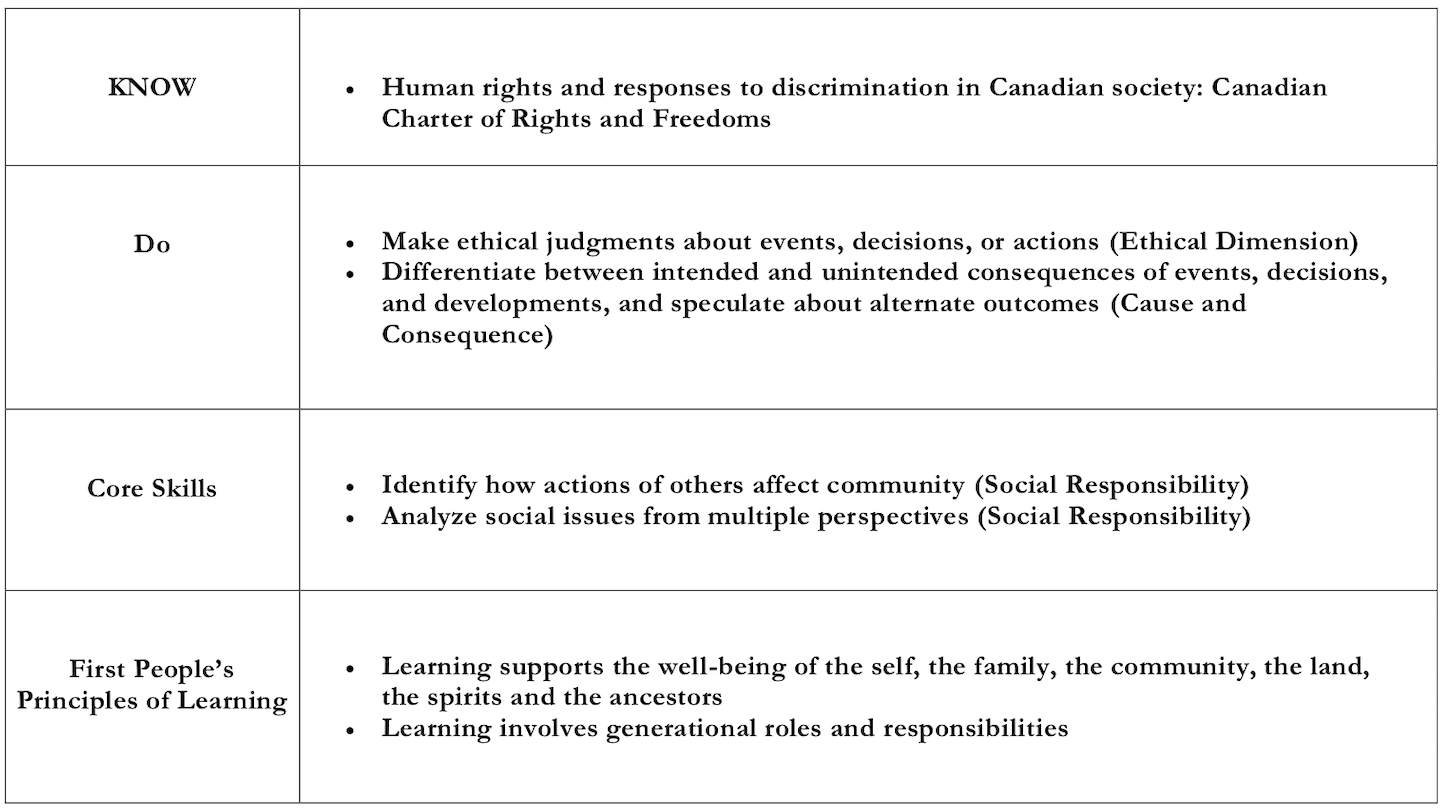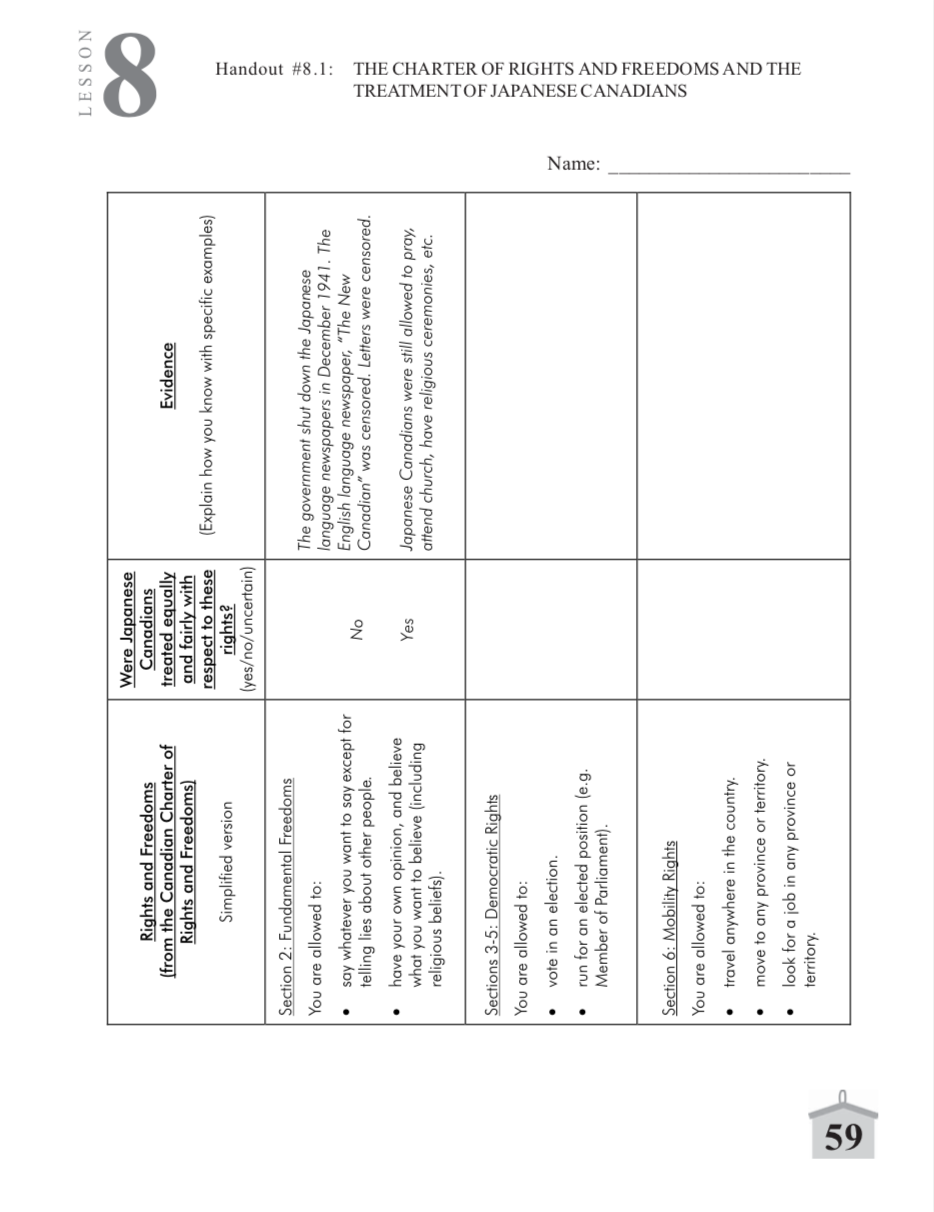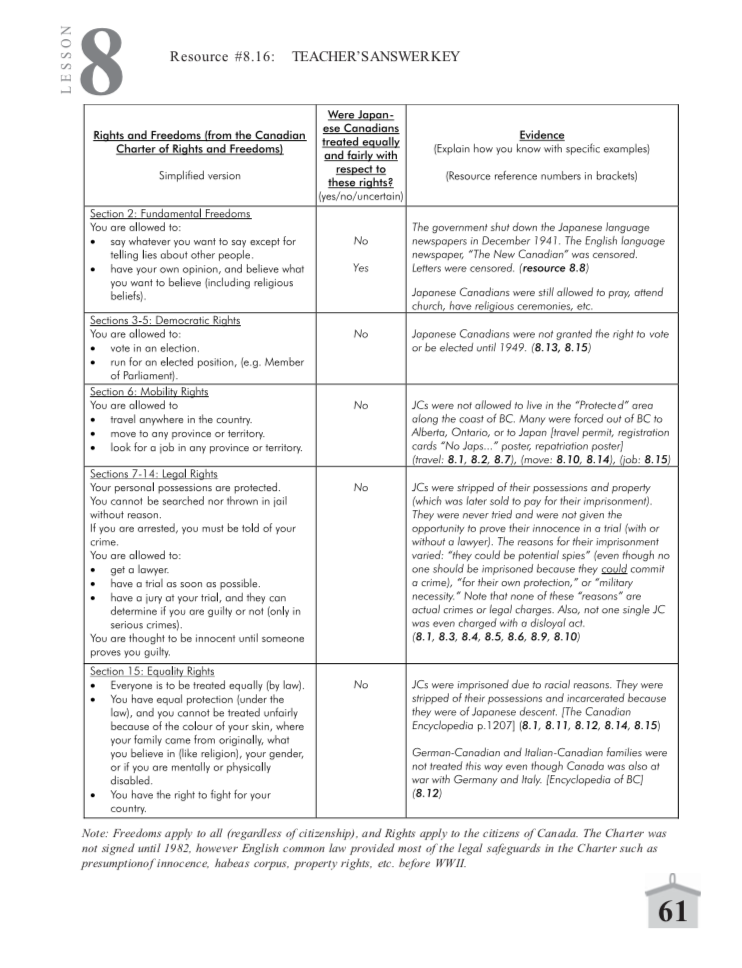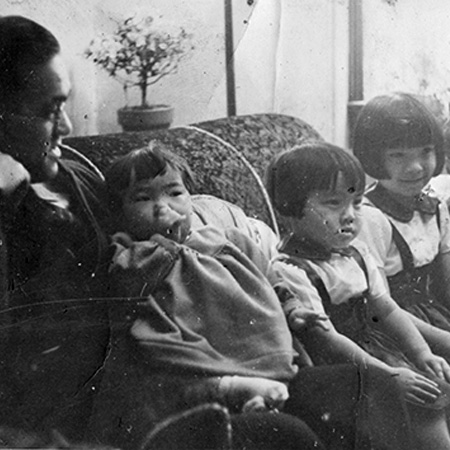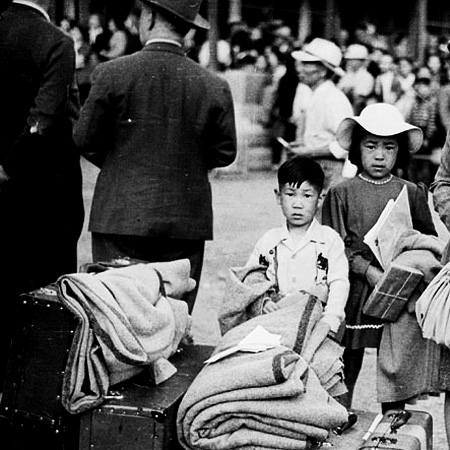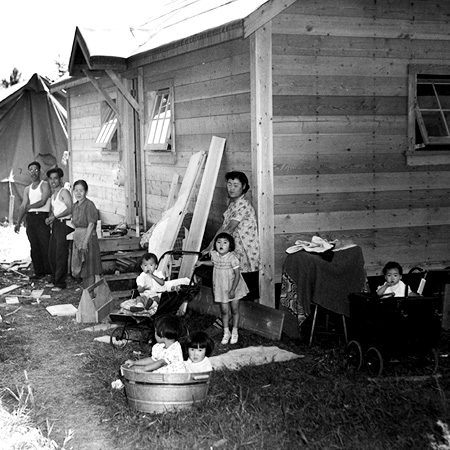
Lesson 7: Charter of Rights and Freedoms
Students determine whether or not Japanese Canadians were treated fairly with respect to certain rights that other Canadians held.
How
- Go over the Canadian Charter of Rights and Freedoms with students. Remind students that there was no Charter to protect Canadians until 1981 (the Charter was signed by Prime Minister Trudeau and Queen Elizabeth II in 1982), but English common law provided most of the legal safeguards in the Charter that should have protected Japanese Canadians in 1941 – such as presumption of innocence, habeas corpus, property rights, etc.
- Provide each student with handout "The Charter of Rights and Freedoms and the Treatment of Japanese Canadians."
- Tell students that they will be looking for evidence to support or deny the claim by Japanese Canadians that they were treated unfairly and unjustly. Show the video Minoru: Memory of Exile, if possible.
- Teacher and students examine the photos, and decide which rights were upheld or violated and fill in the appropriate sections on the chart.
- Discuss. (See suggested questions in Assessment Considerations).
- Students complete journal reflection. (See suggested journal reflection prompts in Assessment Considerations).
Assessment
SUGGESTED DISCUSSION QUESTIONS/JOURNAL REFLECTION PROMPTS
SUGGESTED TASK
- Without a Constitution/Charter of Rights and Freedoms, how did it affect the treatment of Japanese Canadians?
- Why is the Charter of Rights and Freedoms important for making sure everyone is treated fairly?
- What is your idea of fairness (now)? What is Canada's idea of fairness?
SUGGESTED TASK
- students handout "The Charter of Rights and Freedoms and the Treatment of Japanese Canadians"
Extensions
ALTERNATIVE PROCEDURE
Jigsaw: Divide students into teams and have each team responsible for one area or one document. They fill in their part and share it with the rest of the group. Once all teams have shared, they should be able to complete the entire chart.
Have students write about other (human) rights that were violated. (e.g. education, health care, etc.).
